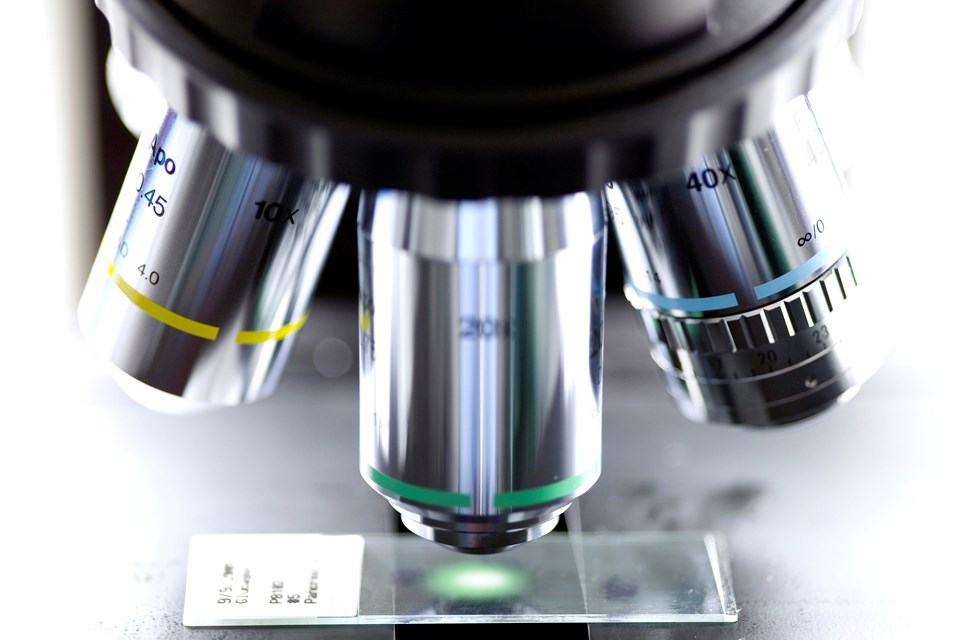A 13-year-old girl found dead in a Burnaby park in 2017 may have been unconscious but alive for up to an hour after her brain was starved of oxygen for a period of time, according to an expert witness at a Burnaby murder trial Tuesday.
Dr. Stephen Yip, a neuropathologist at Vancouver General Hospital, took the stand at the trial of Ibrahim Ali in B.C. Supreme Court in Vancouver Tuesday.
Ali is on trial for first-degree murder in the teen’s death.
Yip examined the slain girl’s brain during an autopsy at Vancouver General Hospital on July 20, 2017, the day after police discovered her lifeless body in the bush at Central Park.
In an August 2017 report, he concluded the girl suffered brain damage (hypoxic ischemia) caused by a lack of oxygen or blood flow.
Yip told the jury he examined the girl’s scalp, skull and brain and found no abnormalities visible to the naked eye, but, examining her brain tissue under a microscope, he found “dead and dying cells” and build-up of a protein (amyloid precursor protein or APP) consistent with hypoxic ischemia.
Yip explained oxygenated blood is brought to the brain through the carotid and vertebral arteries, and waste is taken out through the jugular vein.
“What I understand that you’re saying is there was some trauma or something that caused the brain to no longer receive blood flow or oxygen,” Crown prosecutor Daniel Porte said.
“Yes,” Yip said.
When asked how long he believed her brain had been deprived of oxygen or blood flow, Yip said “A few minutes to 10 minutes.”
After a “point of no return,” even if blood flow to the brain restarts, Yip said the damage is “irreversible.”
Porte asked Yip if, in his opinion, the victim had died immediately after the trauma that had caused the lack of oxygen or blood flow to her brain.
“I think she most likely was still physiologically alive, that is, some of her basic cellular function was still working, but most likely unconscious, and it was most likely an irreversible process," Yip said.
Yip said the victim may have stayed alive for 25 minutes to an hour as her body shut down.
The Crown's theory, which has not been proven, is that Ali attacked the 13-year-old in Central Park, dragged her into the forest and strangled her to death while sexually assaulting her.
Under cross examination, Yip said the cell damage he saw could have resulted from strangulation, but acknowledged he couldn’t say “definitively” that was how the victim’s brain came to be starved of oxygen.
“To be very clear,” defence lawyer Ben Lynscey said, “you cannot tell us what killed this person, what mechanism killed this person that you examined the brain of.”
“No, I can only say what I performed, which is brain examination, and that there is global hypoxic ischemic injury,” Yip said.
The trial continues tomorrow.
Follow Cornelia Naylor on Twitter @CorNaylor
Email [email protected]



